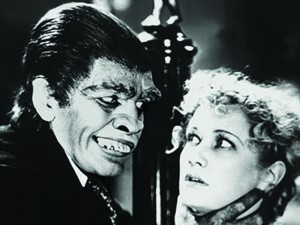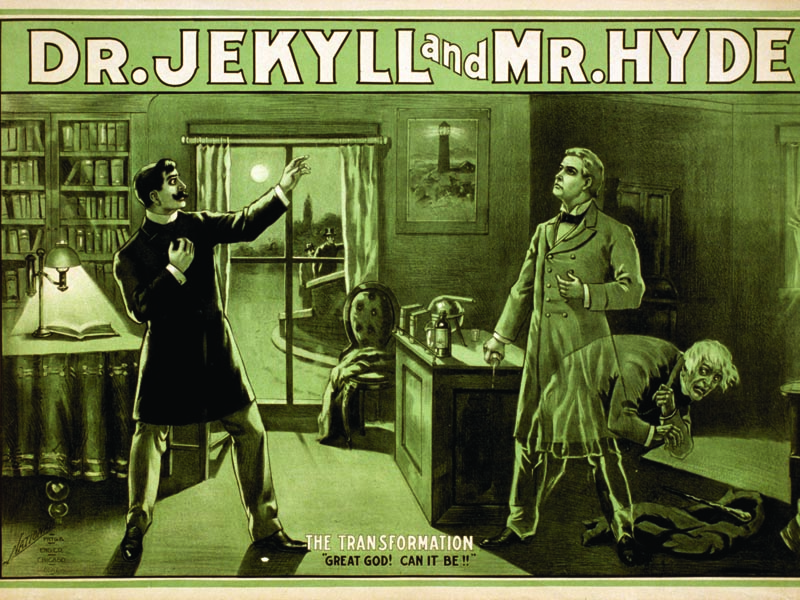Former politicians who decide to become doctors present an intriguing conundrum for the patient relationship
A Hippocratic precept that has shaped the practice of medicine for two millennia is that doctors must adopt an objective and unbiased approach to their patients, regardless who they are. Thus, a saintly nun should receive the same treatment as, say, a vicious criminal.
A good example of the dilemma this can cause for the doctor occurred during the trial of Vidkun Quisling, the Norwegian traitor, in 1945. Neurologist George Monrad-Krohn persuaded a court that he required investigations to exclude a brain tumour (Monrad-Krohn felt there was no other explanation for Quisling’s treachery, the psychiatrists having declared him sane).
Quisling was sent to Sigvald Refsum (of Refsum Syndrome fame). At the consultation, Quisling stuck out his hand but Refsum could not bring himself to shake it. To his credit, he later berated himself, saying that even the Norwegian traitor deserved courtesy in the consulting room, regardless of what he had done.
It is not uncommon for doctors to go into politics and some progress to higher positions, such as health minister. This occurs on a regular basis in Australian legislatures.
Not all doctors in politics bring credit to the profession. Just a few of the dictators that hail from a medical background include Malawi’s former president Dr Hastings Banda, Haiti’s brutal leader Dr Jean-Claude (“Baby Doc”) Duvalier and Syria’s current president Dr Bashar Hafez al-Assad.
On the more positive side of the ledger, is David Owen, who had a distinguished career as UK foreign minister and later wrote a fine book about the hubris syndrome affecting political leaders.

Not examined to date are the issues raised when the reverse occurs, namely a political figure then becomes a doctor. Some politicians may return to practice, but their patients will have followed them through the political phase and had time to decide how they feel.
These musings have been brought into focus by the recent revelations of former Australian MP Robert Oakeshott.
Oakeshott had a 17-year representative career, first in the NSW state parliament, then in federal parliament. Having started out as a member of the National Party, he won several elections as an independent. His career reached its apogee, if that is the right word, during the Gillard minority government where his support was instrumental in keeping that government in power.
This led to more than a touch of controversy and Oakeshott stood down in the 2013 election, saying he was finished with politics. Whether this had anything to do with polls indicating that he was unlikely to win his seat again is not clear.
For the next three years, the public, resting in the belief the Oakeshott soufflé (to use the terminology of Paul Keating) was not destined to rise again, were taken by surprise (or possibly not) when, shortly before the July 2016 election, it was announced that Oakeshott was running again as an independent in a neighbouring seat.
In this democratic system, anyone can stand for election provided they can fork up a deposit. Candidate Oakeshott obligingly provided some more information on his intended political resurrection. The parliamentary pension he received was inadequate to support his family. Consequently, he had decided to train as a doctor to provide a new career.
He added that he came from a medical family so he should be comfortable in the new field.
The dictum of controversial British politician, Enoch Powell, that all political careers end in failure, seems to be a concept that Oakeshott has difficulty coming to terms with. Nowhere did Oakeshott explain what work he had done before going into politics, what he had planned to do when his political career ended – as they all must eventually – or why it had taken so long for him to reach this decision.
The clincher was that he had been accepted into the training course at the Graduate School of Medicine at Wollongong University at the start of the year and was commuting to lectures. The Graduate School of Medicine is a new school with an innovative program to train rural and regional doctors. In line with the world-wide trend, trainees require a degree and have to pass an exacting series of interviews to determine they have the personal qualities and approach required in a doctor.
So far, so good. Future doctor Oakeshott has met these requirements and sailed into his training.
Some cynics, and there are a few around, wondered whether there was some hedging of bets: if candidate Oakeshott was successful at the election, what would happen to the alternate career of future doctor Oakeshott? These unkind sentiments were scotched by those inconsiderate voters who ensured that he failed to get elected, leaving him free to progress to doctorhood.
But let us, for the purposes of this exercise, consider the issue of a controversial politician going into medicine. Historical examples are remarkably difficult to find. The nearest one who comes to mind is not a politician but a distinguished person entirely of another kind: Albert Schweitzer, theologian and pianist, proceeding when trained as a doctor to work in a leprosy hospital in Africa. However, Schweitzer was, by any standard, a saintly figure which hardly puts him in the same category as a politician.
Another example shows that past controversy is not always an obstacle in the doctor-patient relationship.
Alan Berkman trained as a doctor but became involved in radical American politics in the 1970s. He went on the run but was arrested and spent seven years in jail, much of it in isolation, in conditions which permanently damaged his health. Berkman eventually put his legal problems behind him and channelled his altruism into community treatment of the AIDS epidemic, which was then at its height.
He went to South Africa, where then-president Thabo Mbeki’s meretricious AIDS denial led to hundreds of deaths through refusal of treatment – the listed figure is 330,000. Berkman, whose work received wide recognition, died relatively young of leukaemia.
Berkman, it is true, was not a politician, but he was a prominent activist, went underground, and had been a convicted felon. It is to the credit of the authorities that he was allowed to continue in medical practice; one can doubt whether this would be allowed today.
Berkman’s dedication was such that his patients and colleagues had no difficulty accepting him, and the good that he did as a doctor to many at the bottom of the social pile was immense.
So is it reasonable to expect a patient who has a well-formed set of prejudices about a politician to then submit to their care as a patient? They can, of course, choose to see someone else, but patients don’t have that luxury in many cases.
One can only wish future Dr Oakeshott well in his studies and career. In the past, doctors came from limited upper-middle class circles, often medical families. Now, and rightly so, medicine is a broader church, taking men and women from all sections of society to ensure that they can relate to their patients’ social and cultural backgrounds. There is no reason he cannot usefully apply his own experiences in this regard.
But the question still needs to be asked: on whom is the responsibility when the doctor is a politically controversial figure, and what effect would this have on the doctor’s capacity to provide the patient with objective treatment? Who then should step aside?
The case of Dr Oakeshott may provide us with some useful information about this.
Robert M. Kaplan has a position at the Graduate School of Medicine, University of Wollongong, but is not involved with trainees. He has a long-standing interest in the doctor-patient relationship


